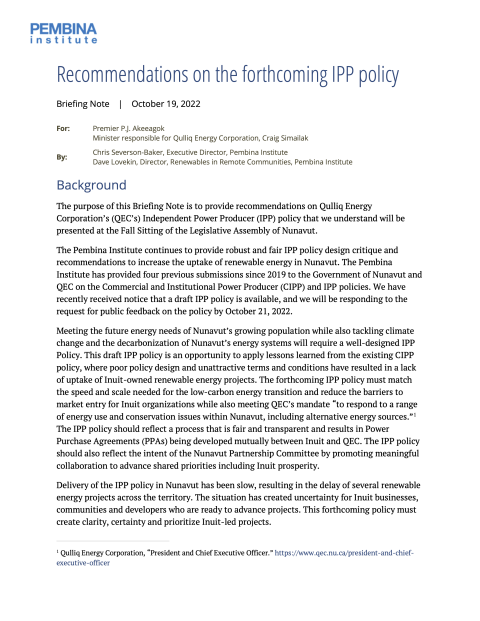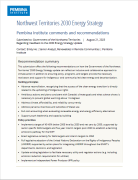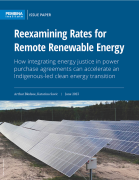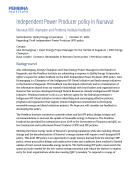The Pembina Institute is submitting a response to Qulliq Energy Corporation (QEC)’s forthcoming Independent Power Producer (IPP) policy draft. The Pembina Institute continues to provide robust and fair IPP policy design critique and recommendations to increase the uptake of renewable energy in Nunavut. The Pembina Institute has provided five submissions since 2019 to the Government of Nunavut and QEC on the Commercial and Institutional Power Producer (CIPP) and IPP policies.
Meeting the future energy needs of Nunavut’s growing population while also tackling climate change and the decarbonization of Nunavut’s energy systems will require a well-designed Independent Power Producer (IPP) Policy.
Delivery of the IPP policy in Nunavut has been slow, resulting in the delay of several renewable energy projects across the territory. The situation has created uncertainty for Inuit businesses, communities and developers who are ready to advance projects. This forthcoming policy must create clarity, certainty and prioritize Inuit-led projects.
The Pembina institute has created recommendations for the Qulliq Energy Corporation’s QEC’s forthcoming IPP policy. This draft is an opportunity to apply lessons learned from the existing policy designs and delivery trends. The forthcoming IPP policy must match the speed and scale needed for the low-carbon energy transition and reduce the barriers to market entry for Inuit organizations while also meeting QEC’s mandate “to respond to a range of energy use and conservation issues within Nunavut, including alternative energy sources.”
In our briefing note, the Pembina Institute recommends the following:
- Prioritize Inuit ownership in renewable energy projects
- Improve PPA negotiation terms and best practices
- Develop a community-specific PPA price
- Fair terms, conditions, and rates for Inuit proponents
- Commit to utility data transparency









